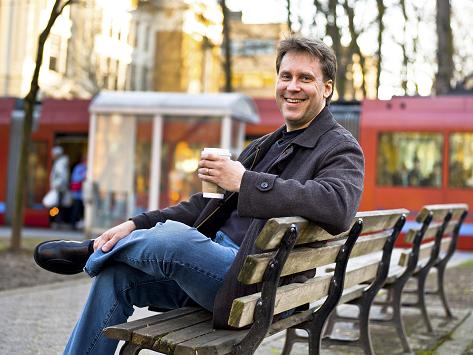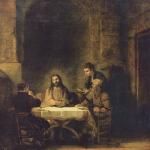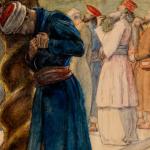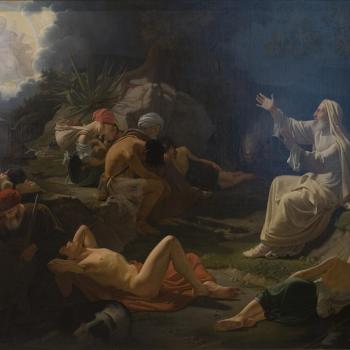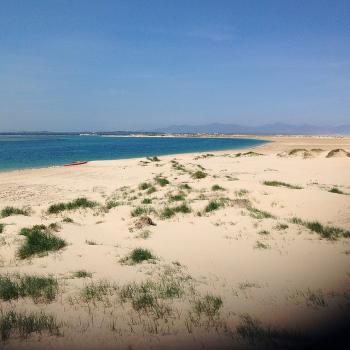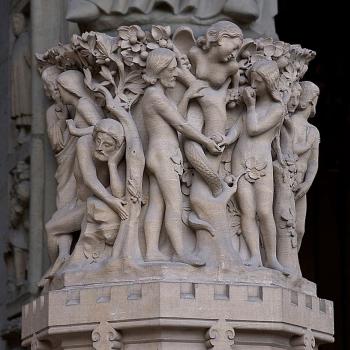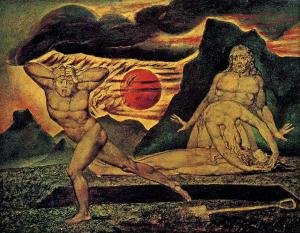
This post reflects on the biblical story of humanity’s crisis or tragedy involving our original rebellion against God and its aftermath in Genesis 3 and 4. I also place it in the context of our contemporary society, engaging The Batman and East of Eden. In our seemingly eternal struggle with the tragic human condition, we often find comfort in tragic and heroic figures who seek to conquer despair and offer hope.
Fascination with Tragedy
Just like ancient people, we find tragic aspects of human existence fascinating. We rarely if ever find a story or movie believable and compelling if there are no tragic characters, elements, and events in the plot. Moreover, we often read or watch expectantly, wondering if the tales’ tragic figures will respond and if they will be able to climb out of the pit of depravity and despair to experience liberation.
Various traditions and classic works deal with the human crisis and hope of liberation. Buddhism’s diagnosis of the cause of suffering and the prescription for how to attain liberation is one enduring master narrative. Greek tragedies and human attempts to defy fate and experience freedom, as in the case of Oedipus Rex, linger long in the imagination. The biblical story of Adam and Eve’s fall into sin in Genesis 3 and their son Cain’s killing of his brother Abel in Genesis 4 take place east of Eden each and every generation, as John Steinbeck’s novel East of Eden illustrates.
In what immediately follows, I will present highlight reel material in the biblical story of the fall and its aftermath found in Genesis 3 and 4. Then I will turn to consider overlapping themes of tragedy and hope in The Batman and East of Eden.
Crisis Account Highlights in Genesis 3 and 4
Here are some select highlights from Genesis 3 and 4:
- The serpent, which Christian Scripture later associates with Satan, tricks the first couple into doubting and disobeying God’s Word (the command was recorded in Genesis 2). They eat the forbidden fruit from the tree of the knowledge of good and evil.
- The couple now become aware of their nakedness and hide from God on account of fear (and quite possibly guilt and shame).
- God goes in search of Adam and Eve.
- God judges the serpent as well as the couple for their rebellion. The fallout from humanity’s disobedience and cursed existence reaches every dimension of creaturely life.
- God casts Adam and Eve out the Garden of Eden so that they do not eat from the tree of life and live forever in their tragic condition. God also promises to deliver humanity from the serpent through the woman’s own seed.
- Adam and Eve’s son Cain becomes angry with his brother Abel because God favors him and his sacrifice.
- God warns Cain to resist sin and rule over it. Cain discounts God’s Word, choosing to do evil by killing his brother Abel.
- God curses Cain, removes him from his presence, and makes him a restless wanderer on the earth. And yet, God is merciful, protecting Cain from harm and granting Adam and Eve another child, Seth, in place of Abel.
More could be said about Genesis 3 and 4. But for the remainder of the post, we will talk more generally and existentially about the human fascination with tragedy and its aftermath and how we might respond with courage and hope.
Tragedies: Compelling Yet Overwhelming
I believe one of the reasons we often find tragedies so compelling is because they are relatable to our experience. Moreover, they can provide a sense of comfort that we are not alone in dealing with crises and seeking to overcome them. As the old saying goes, misery loves company, and in a variety of ways. Certainly, there are times when we seek to discount or avoid dealing with bad news. After all, there is only so much we can take. However, given how television and other news sources broadcast tragic events from across the globe, we find it very difficult to escape the deluge. It can become overwhelming. But so is our lot in life. Our crisis conditioning as humans can be overwhelming, and so we seek out tragic figures who are also heroic.
Tragic and Heroic Figures
We find one such tragic and heroic figure in the recent movie, The Batman. I read various sources that inspired Matt Reeve’s interpretation of the Batman played by Robert Pattinson. One finds that the movie’s theme song, Nirvana’s “Something in the Way,” is far from a coincidence. Nirvana’s front man, the late Kurt Cobain, inspired the Batman character. Reeves shares in an interview: “In that movie,” Reeves said, “you could really feel his [Pattinson’s] vulnerability and desperation, but you could also feel his power. I thought that was a great mix. He’s also got that Kurt Cobain thing, where he looks like a rock star, but you also feel like he could be a recluse.”
Contrary to what we might think, even great tragedies don’t leave us completely in despair. Certainly, billionaire Bruce Wayne, who is the Batman, endured daily the loss of his parents, who were murdered when he was a child. Later, as an adult, he witnesses their character assassination, as recounted in this unique or novel account of the superhero. But he did not allow evil to get the upper hand. Nor did he allow his depression to make him a complete recluse whereby he lived in isolation. He finds some level of solidarity with Alfred, the family butler who raised Bruce Wayne, Jim Gordon, Gotham’s city police commissioner, and the Catwoman. Together, they pursue justice in the seemingly unending battle with evil. The Batman harnessed his depression and turned his struggle with despair into a force for doing good, as one discerning, inspiring article conveys.
Interestingly, Martin Luther King, Jr., who struggled with deep depression throughout his life, also turned it into a force for good (Refer here). Similarly, in my estimation, Cobain sought to turn his abiding struggle with depression, mental illness, poor physical health, and addiction into forces for good. Songs like “Come As You Are,” “Dumb,” and “All Apologies” not only lead one to see his struggles and feel his pain, but express his empathy for those who experience life as recluses, always outside, wanting to get in. He opens the door so they can enter.
The Cain and Abel Story Revisited: East of Eden
Lastly, John Steinbeck tells us through Adam Trask that we need not, should not, allow despair to have the last word. Adam tells his son Cal, who represents Cain, that he need not always live to destroy. He can choose otherwise. In what follows, I draw from another Patheos post, “Bring it Home with John Steinbeck’s East of Eden,” where I recount the scene:
In Steinbeck’s East of Eden situated in and around Salinas, we encounter a man named Adam, who has two sons, Cal and Aron. Adam Trask’s son Cal is responsible in part for his brother Aron’s death. His pain over his father’s rejection of his gift in favor of his brother led him to seek to harm his brother (the same kind of favoritism and rejection were present in Adam Trask’s home when he was a boy). Cal exposed Aron to a dark family secret: their mother Cathy, who is hard and cold and who abandoned the family after the boys were born, makes her living running a house of prostitution. This revelation overwhelmed the innocent Aron and led him to make choices that resulted in his death (enlisting in the military and going off to fight in WW1 where he died).
Adam Trask is undone by the tragedy of Aron’s death. Paralyzed by a deadly stroke, he lies in bed. His Chinese servant Lee, who helped him raise the boys, seeks to reconcile Adam and his son Cal before Adam dies. At his bedside, Adam utters one word to Cal—the Hebrew word timshel. It is a word that God uttered to Cain as he wrestled with the temptation to sin against God and his brother. In East of Eden, it is interpreted as “Thou mayest” overcome sin. Even now, there is hope for Cal. Cal can change. He is not doomed to be evil like his mother, Cathy. He can live a new life. His father extends grace to him to free him with this word of hope. His father also changes in that he moves beyond a historic cycle of family favoritism to one of grace.
Restless Wanderers: In Search of Eternal Hope
All of us are from Salinas, California, which is where Steinbeck was raised. In other words, none of us live in a pristine garden. We all live east of Eden. But we don’t have to live as victims of our fallen state and societal environment or fractured family histories and personal cycles of dysfunction. We may overcome our acts of violence, rejection, haunting memories, and abandonment from the past. We can offer words of hope and live lives of grace toward others, just as God spared Cain from a similar fate to Abel’s east of Eden, as we bring the cosmic story home.
Each in their own way, Matt Reeves’ Batman, Kurt Cobain, and John Steinbeck’s retelling of the Cain and Abel story help us see that we are restless wanderers east of Eden. And yet, there is always hope. We can experience connection with others, find courage to face life’s tragedies, and operate with compassion for other restless wanderers.
Through it all, may we come to terms with the very real possibility that the God who kicked the first couple out of Eden only did so to spare them from a far greater evil—to take from the tree of life and live that tragic existence forever (See Genesis 3:21-24). God who promised to deliver them from the serpent’s snares through the woman’s seed (Genesis 3:15). This same God will provide a way out of no way so that Adam and Eve’s progeny may experience healing from the curse and flourish forever as his children by the tree of life in the city of God (Revelation 22:1-5).


